Guinea Eggs vs Chicken Eggs: Which Fits Your Homestead?
Guinea eggs vs chicken eggs—discover the real differences in taste, size, nutrition, and reliability so you can choose what’s right for your homestead.
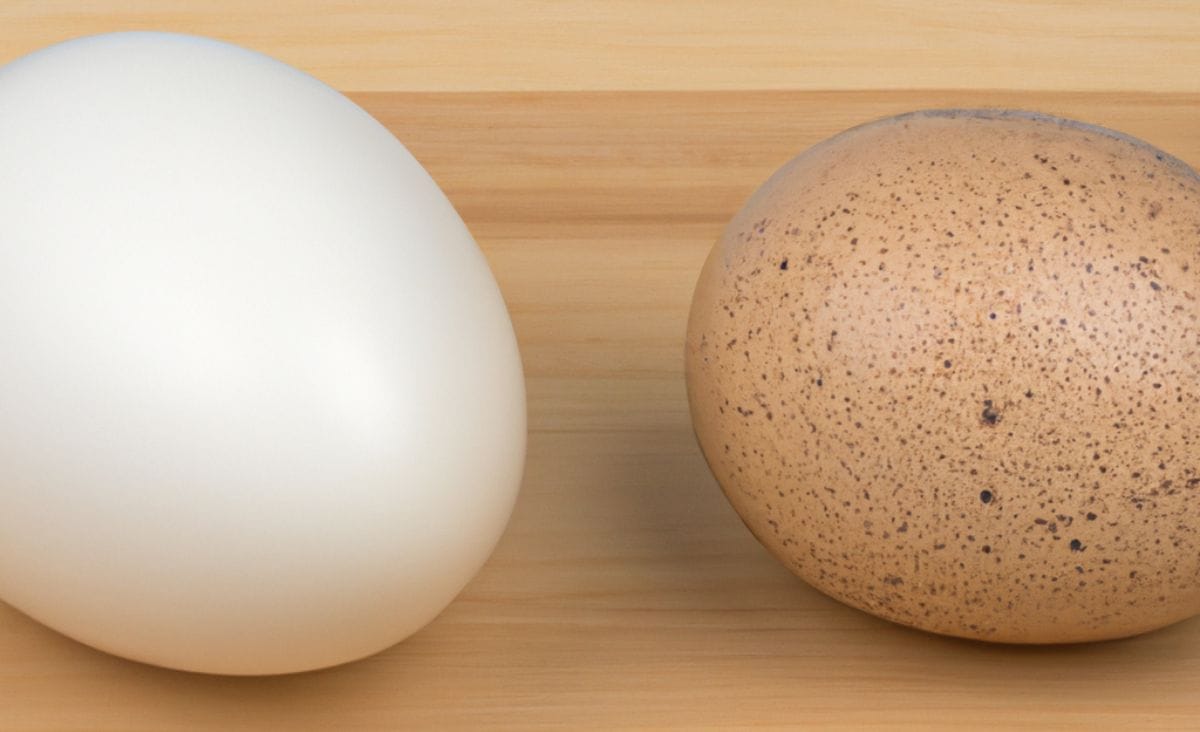
When most folks think about raising backyard poultry for eggs, chickens are the obvious go-to. They’re familiar, productive, and downright iconic in the world of homesteading. But if you’ve been around The 104 Homestead for any length of time, you know I’m a fan of looking beyond the norm to find what really works best for each unique situation.
That’s where guinea fowl come in. They’re quirky, loud, a bit wild—but they also lay eggs. And those eggs? Well, they have some surprising differences from your everyday chicken eggs. If you’re wondering whether guinea eggs or chicken eggs are the better fit for your homestead, let me walk you through the pros and cons of each.
Guinea Eggs vs Chicken Eggs: A Full Comparison
There’s no shortage of opinions when it comes to which type of egg is better, but let’s break it down one category at a time so you can decide for yourself.
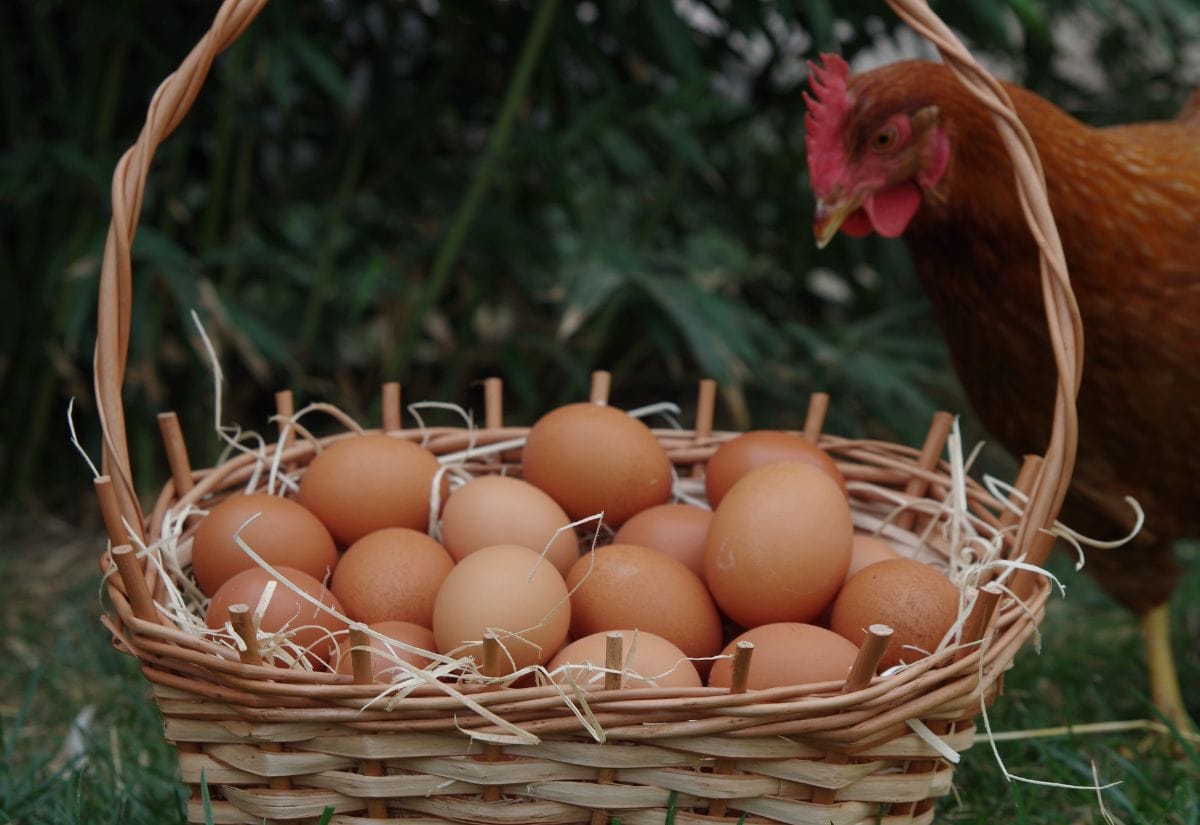
Size and Appearance
Let’s start with the basics. Chicken eggs are typically larger than guinea eggs and come in a variety of shell colors depending on breed. Guinea eggs, on the other hand, are smaller and speckled with a thicker, tougher shell. If you’re used to cracking a chicken egg with one gentle tap, guinea eggs might take you by surprise—they need a bit more force to open.
That thick shell actually makes guinea eggs ideal for longer-term storage. Less chance of breakage, less moisture loss. So if you’re stocking up for the off-season or like the idea of sturdy, travel-ready eggs, guineas have the edge.
Flavor and Texture
Here’s where things get interesting. Flavor-wise, guinea eggs are often described as richer and creamier than chicken eggs. Some folks say they can’t taste the difference, while others swear guinea eggs make baked goods fluffier and omelets more decadent.
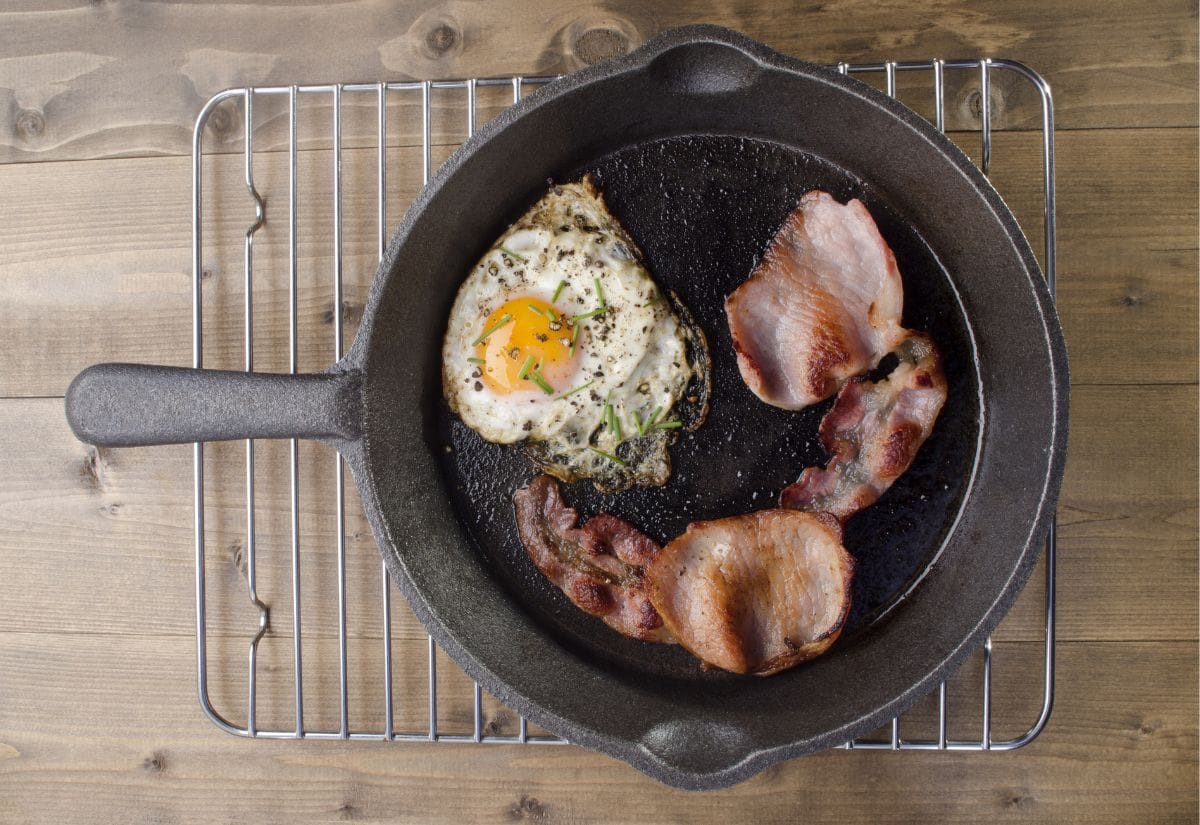
The yolks tend to be larger in proportion to the whites, giving you that deep yellow color and richness. If you love that old-fashioned farm egg experience, guinea eggs definitely deliver.
Egg Production
This is where chickens tend to take the lead. Most backyard chicken breeds lay reliably 4–6 eggs a week, with some superstar hens pushing out even more. Guinea hens? Not so much. Their laying season is shorter—typically spring through early fall—and they might lay 3–4 eggs a week at best. Some guinea hens are also secretive nesters, which means you might not find those eggs unless you’re actively searching.
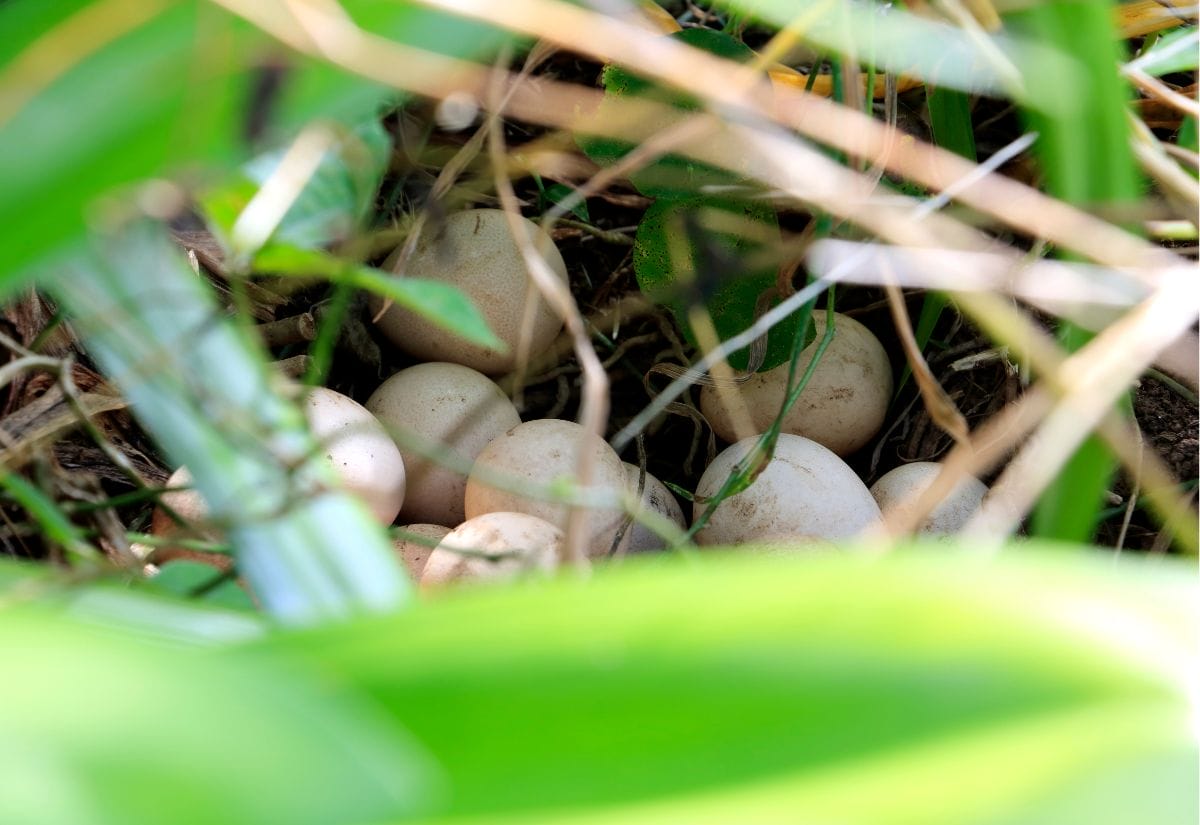
If consistent egg supply is your main goal, chickens are hands-down the more reliable producers. But if you’re already raising guinea fowl for other reasons and want to enjoy their eggs when available, it can still be a nice bonus.
Raising the Birds: What to Expect Beyond the Eggs
Egg production is just one part of the equation. If you’re considering adding chickens or guineas to your homestead, it’s worth thinking about how they behave, how easy they are to manage, and whether you’re interested in hatching your own.
Broodiness and Hatching
Guinea hens can be fiercely broody when they decide to sit on a nest, and they do a decent job at hatching if left alone. However, they often build nests in hard-to-find or unsafe places, and their hatch rates can be unpredictable. Chicken hens, especially heritage breeds, can be dependable sitters, and you can always use an incubator or a broody hen to hatch either type of egg.
If you’re looking to hatch your own replacement birds or raise chicks with minimal fuss, chickens tend to offer a more beginner-friendly experience. That said, guineas do reproduce well if you’re willing to let nature (and a bit of chaos) take its course.
Noise and Behavior
This might not seem directly related to eggs, but hear me out. Guinea fowl are notoriously loud. Their constant chatter can be a deterrent for some folks—and a blessing for others, since they make excellent watchdogs. Chickens are far quieter overall, with most noise limited to the egg song or some light clucking.
If your neighbors are close or you’re looking for a quieter homestead vibe, chickens win. But if you value a little noise in exchange for predator warnings and quirky personalities, guineas might still be worth considering.
Which Bird Is Best for Eggs?
If you’re after high, steady egg production with minimal fuss, chickens are still the MVPs of the backyard coop. They’re easy to manage, consistent, and provide a great return on feed and care. If your hens stop laying, here’s what to do to troubleshoot and get them back on track.
Guinea eggs, while smaller in number, bring their own unique advantages—especially if you’re already raising guinea fowl on your homestead and want to make the most of everything they offer. And if you want to dive deeper into the benefits of raising a guinea fowl flock, this post covers it all.
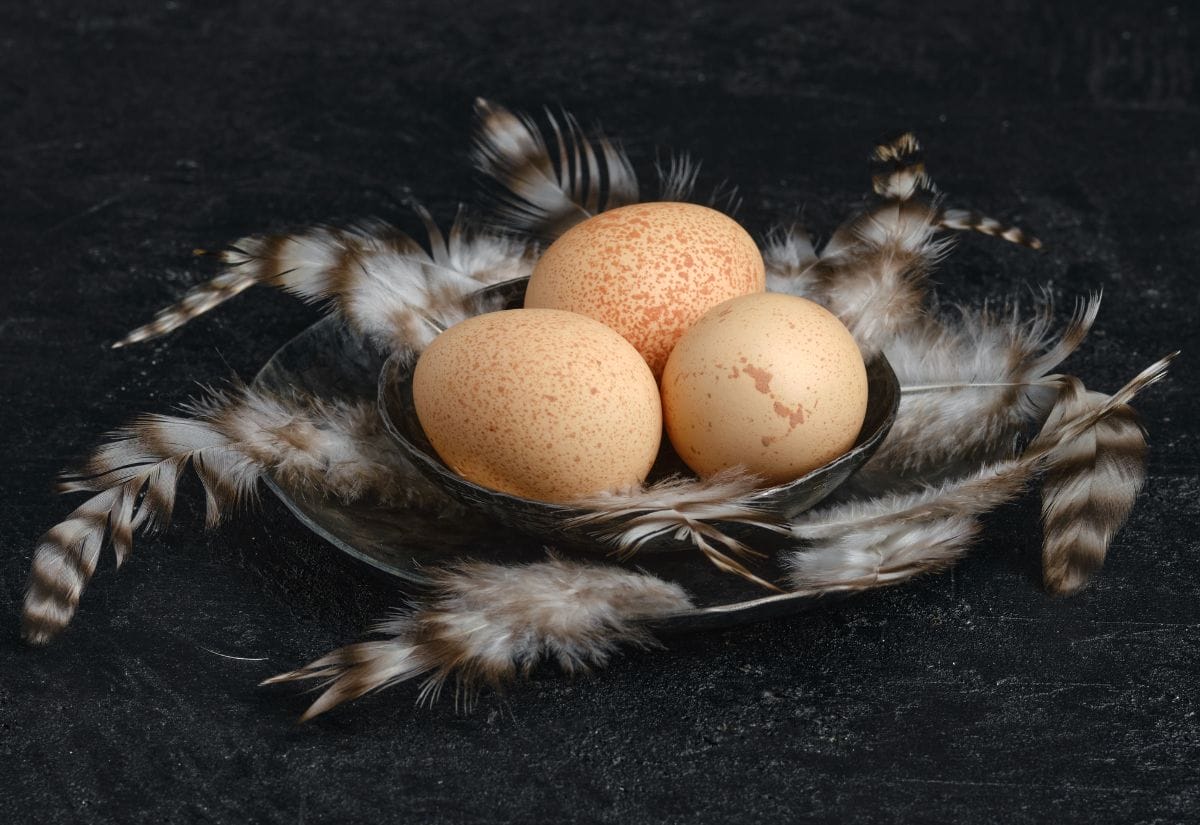
And for those curious about safe storage practices for both chicken and guinea eggs, here’s what to know about farm fresh eggs so you can handle them with confidence.
Common Questions About These Two Egg Types
Pin this post for later and keep this comparison close while planning your flock!

At the end of the day, there’s no wrong answer—just what’s right for you. Chickens are perfect for beginners and consistent egg lovers. Guineas offer a flavorful surprise and a whole lot of personality, if you’re up for the challenge.
If you’re already dreaming of quirky birds and colorful egg baskets, why not try both? A mixed flock brings the best of both worlds—and you’ll always have something fun to share at the breakfast table.
Which bird are you leaning toward—reliable layers or flavorful oddballs? Let me know in the comments!




